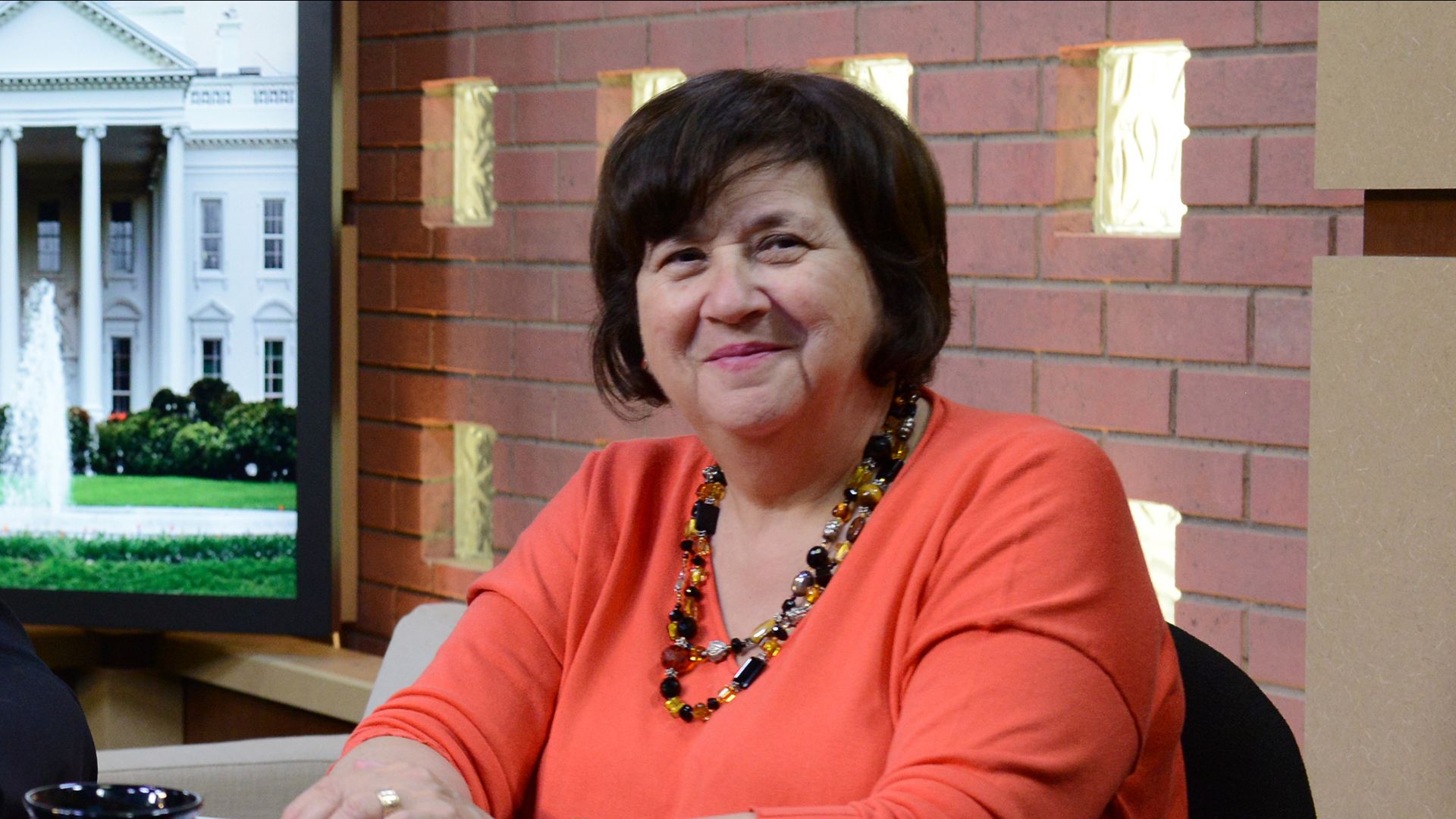Tuesday, Oct 11, 2016
by Lauren Kidd Ferguson
This electoral season, a group of Rider University students is watching Sunday morning news shows, diligently reading newspapers, listening to news radio, and spending three hours every Monday evening discussing the role that communications plays in the presidential campaign process.
The students are in Dr. Myra G. Gutin’s class Communication and Society: The Making of the President 2016.
“We are looking at the presidential campaign from the perspective of communication,” Gutin explains. “We are looking at things like the speeches candidates are giving, the debates, press releases and statements. Our emphasis is not quite as much on the politics, but instead on the public presentation of candidates.”
Gutin, a communications professor, has taught the class seven times, or every four years since 1988. Over that time, she has seen the drastic changes in the ways that candidates get out their messages.
“The mushrooming of social media sites and blogs has just really altered the nature of the campaign,” she says. “Now candidates may circumvent the media to take their messages and appeals directly to their supporters, or uncommitted voters. In years past, they didn’t have that possibility. They had newspaper, radio and television reporters following them, and they did their best to give them a soundbite.”
During this election season, she says, she has heard candidates say things “that I wouldn’t have believed any politician could get away with.”
It makes for an interesting, engaging class.
“I’ve had students who said to me, ‘I wouldn’t want to take this class,’ and I’ve said, ‘If ever you were going to take it, this is it,” says Gutin, who is the author of two books on the topic of American first ladies, The President’s Partner: The First Lady in the Twentieth Century and Barbara Bush: Presidential Matriarch.
The roughly 15 students in the class come from all over the University. They are not only journalism, communications or political science majors. A few are Rider alumni who have returned to campus to audit the course.
Gutin has arranged for a number of guest speakers.
Dr. Ben Dworkin, director of the Rebovich Institute for New Jersey Politics at Rider University, spoke about the candidates’ messages and the ideas they try to get across to their audiences.
Peter Sheridan, executive director of the New Jersey Republican Party, and Karin Elkis, former deputy state director for U.S. Senator Robert Menendez, a Democrat, are also scheduled to talk. They will discuss attending the national political conventions held by their respective parties this year, as well as their respective party’s candidates and campaigns.
“I am pleased to be able to give our students access to these people,” Gutin says.
As they learn from those involved with the campaigns, and follow along with the campaigns themselves, students will also gauge the political opinions of those around them. They will be conducting a project to poll the Rider community about their opinions related to the election.
And there is one important requirement of the class — students must vote on Nov. 8. “I won’t let people sit it out,” Gutin says.

